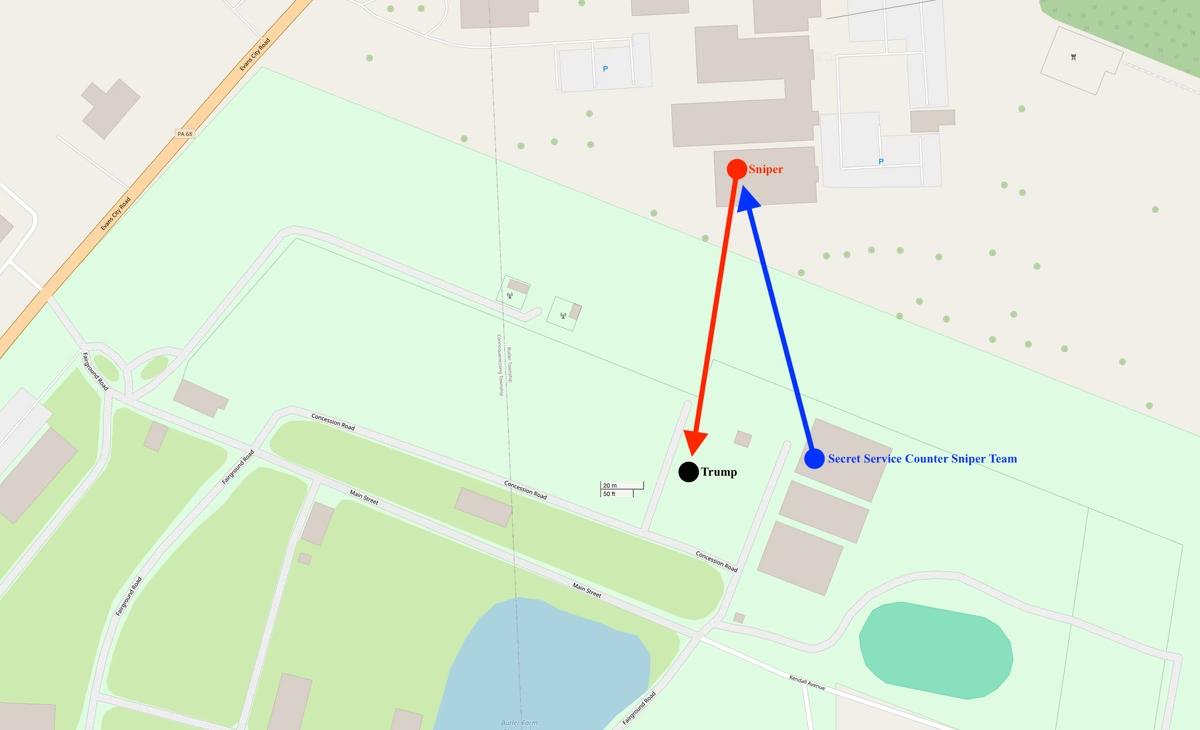Key news and views on democracy at home and abroad

The attempted assassination of Donald Trump shook all Americans of good will to the core. From diehard supporters of the former president to his fiercest detractors, anyone with sense could agree that political violence is not the way. We stand with them in forcefully condemning this savage act.
As RDI’s CEO Uriel Epshtein writes, “Bullets fired in service of a political agenda don’t just rend flesh and bone. They tear at the fabric of our social contract. Political violence takes power away from the people—the very essence of democracy—and puts it in the hands of an unaccountable mob.” Indeed.
But political violence isn’t the only threat to our fragile democracy. Timidity in the presence of illiberalism and authoritarian impulses only strengthens those who seek to weaken our republic and the Constitutional framework that upholds it. We cannot let righteous indignation or fear prevent us from criticizing those who have, by word or deed, endangered them. Now is the moment for speaking the truth fearlessly and fairly and for steadfastly defending our shared principles. —Melissa Amour

A kinder, gentler GOP?
The Republican National Convention has given the GOP and Trump a tremendous opportunity to cool their harsh rhetoric, flip the script on President Biden, and work toward pulling American politics back from the brink.
The big test will come tonight, when Trump delivers his speech accepting the party’s nomination for a third time. He has said he threw out his original speech, which was a more classically MAGA-style harangue, in favor of an address that could “bring the whole country, even the whole world, together.”
Trump’s vice presidential pick, Sen. J.D. Vance, who addressed the convention crowd last night, suggests the former president’s commitment to the MAGA ethos will ultimately prevail. Once a Trump critic who used the exact type of speech that Republicans now claim incited violence against Trump, Vance has come full circle. Immediately after the assassination attempt, he took to social media to lay the blame for it squarely on Biden. As for Democrats, they’re ready to move on.
“Democrats shouldn’t walk around apologetic for an assassination attempt they had no part in. We shouldn’t apologize for actions that aren’t ours. We wished Donald Trump well and hoped for his good health. Now it’s time to defeat him through our votes.” —Michael Starr Hopkins, host of “It Matters”
READ THIS TOO: Jack Smith formally appeals Trump classified documents dismissal —The Hill
Inside Project 2025
Is Project 2025 as worrisome as it’s being made out to be? Yes. Once you get past the normal conservative politics, there are some legitimately eye-opening prescriptives that would fundamentally alter parts of the US government and how it functions.
Most significantly, it proposes that the entire federal bureaucracy, including independent agencies such as the Department of Justice, be placed under direct presidential control. This, of course, obliterates the Constitutionally-designed separation of powers, and it’s not hard to figure out how it would benefit a certain presidential candidate who appears to be trying to distance himself from it.
“Imagine politicizing the large parts of our government that are currently relatively apolitical. It’s all too easy to imagine an unscrupulous president using the power this would give him to reward friends and punish opponents across the nation. … If [Trump] wins and Project 2025 goes into effect, he’ll be in a position to engage in that kind of arm-twisting on a massive scale.” —Paul Krugman, economist and political columnist
READ THIS TOO: What is Project 2025, and who is behind it? —The New York Times
The center holds in Europe. Sort of
Moderates worldwide are celebrating the defeat of Marine Le Pen’s National Rally in France and Parliamentary Conservatives in the UK just a few weeks ago. But the victories hide a more complex reality.
In the UK, new Prime Minister Keir Starmer and his Labour Party’s win over the Conservatives was at least partly due to the relative success of Nigel Farage’s Reform UK. The party earned five seats—the most ever by a party to the ideological right of the Conservatives—and Farage will no doubt seek to build on that.
And in France, the surprising defeat of the National Rally was a result of strategic dealmaking between centrist and leftist opponents. French President Emmanuel Macron is left dealing with a still-considerable (and growing) far-right camp, and a larger left and extreme-left alliance in the Assembly that is largely opposed to his centrist agenda.
READ THIS TOO: The center cannot hold: What the elections in France and the UK mean for the US —The Washington Examiner
The future of NATO
Key to the future of the Europe is the future of NATO. A strong summit last week was encouraging, but what happens next? That’s an evergreen question for the 75-year-old alliance, but the outlook is particularly murky this year, with the European far-right’s influence growing and the US election looming.
President Biden and Donald Trump have starkly different ideas about the purpose and importance of NATO, so European leaders are preemptively developing defense strategies that don’t rely as much on the US. They’re also encouraging member nations to field their own armies capable of fighting wars, if necessary. Yet, an America-free NATO would pose significant challenges to the alliance.
“If an American president comes into office and says, ‘We’re done with that,’ there is definitely will in Europe to backfill the American role. The Brits would jump on it. [But] even they will acknowledge they do not have the capacity or the capability, and they can’t do it at the speed and the scale that [the US] can.” —John Deni, senior fellow on security at the Atlantic Council
READ THIS TOO: From blueprints to battlefields: How to ensure NATO’s future readiness —Atlantic Council
Restrategizing Putin’s defeat
Vladimir Putin is also anxiously awaiting November, when the NATO-sceptic Trump could win a return trip to the White House. That would be devastating for Ukraine and, ultimately, the EU.
And, it means the US may have only six months to help Ukraine repel Russia before Trump and his team begin making good on their own plans.
Strategies like integrating Ukraine into the European transatlantic security order and continuing to disrupt Russia’s ability to bypass sanctions and access capital will remain critical, but RDI Chair Garry Kasparov gets right to the point:
“Trump is no more fit to be president today than he was a week or eight years ago. But he is even more likely to be president again now. So if President Biden actually cares about Ukraine and his own legacy, he must give everything to Ukraine now, by any means.”
READ THIS TOO: A military strategy to outlast Russia —Foreign Affairs
An election in…Syria?
In global elections this week, the embattled country of Syria went to the polls to elect 250 lawmakers to parliament. But these lawmakers will have very little power, as two-thirds of seats are automatically reserved for members of autocratic President Bashar al-Assad’s Baath party.
Further, millions of Syrians who live in the Kurdish-controlled northeast or in areas along the Turkish border were effectively disenfranchised, highlighting the ongoing divisions in the war-torn country.
Meanwhile, demonstrators in southern Syria smashed ballot boxes and set fire to ballots in protest of a host of grievances. Their demands to “overthrow the regime” were met with gunfire from police forces.
In these fraught times, Syria’s election experience is a timely reminder of the ugly places where illiberalism and civil war can lead.
READ THIS TOO: Explainer: Syria’s 2024 legislative elections —International IDEA

- This is a test for America —Yascha Mounk
- How to walk back from the brink —Persuasion
- Enemies of democracy —The Dispatch
- Our democracy is bruised but not in danger —The Atlantic
- But what if democracy really is at risk? —Los Angeles Times
- The antiquated law endangering democracy —Brennan Center
- Did the US Supreme Court distort the true threat to American democracy? —The Guardian
- Liberalism isn’t a western concept —The UnPopulist
- How Tunisia’s upcoming presidential elections will erode its democracy —Atlantic Council
- Listen: How political violence hurts democracy —CT Public

Hey Topline readers, you remember the drill. We want to hear your reactions to today’s stories. We’ll include some of your replies in this space in our next issue of The Topline.
Click here to share your take, and don’t forget to include your name and state. We’re looking forward to hearing from you!






